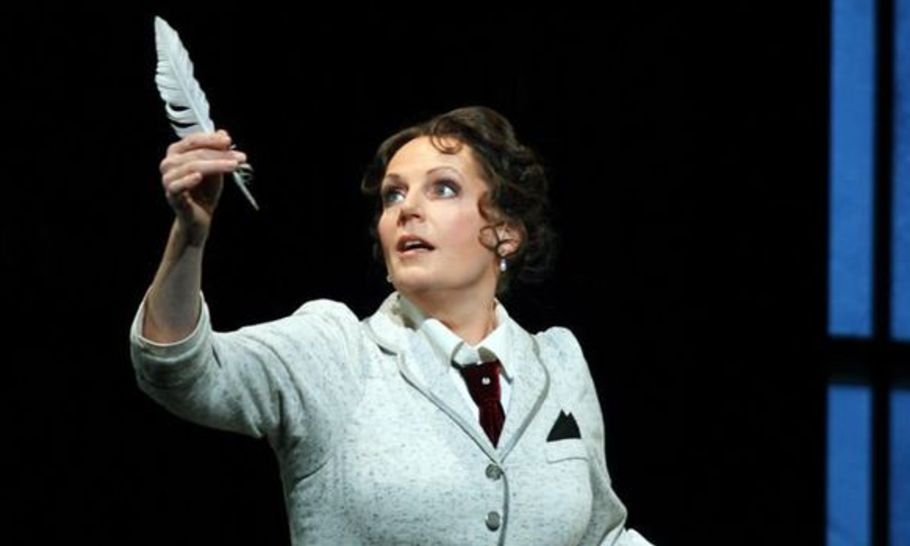Wonderful music can't save a substandard production: Queen of Spades at ROH

In Pushkin’s dark story, anti-hero Herman is determined to extract from the aged Countess her secret of how to win at faro (a card game), and gains access to her by using her young companion Liza, who falls in love with him. In Tchaikovsky’s version Liza is her granddaughter betrothed to Prince Yeletsky, and Herman falls in love with her. It may be difficult to square this passion with his ruthless determination to acquire the countess’s secret, but the music is quite wonderful, and under Antonio Pappano’s direction acquires a glorious lyrical intensity.
The production is less satisfactory. Director Stefan Herheim is a man of huge imagination who created an extraordinary Parsifal at Bayreuth several years ago, but here he adopts the current directorial fashion of having the composer involved in his own opera. Tchaikovsky was ever present, usually as Liza’s fiancé Prince Yeletsky, but sometimes in multiple forms as the whole male chorus. Allusions to Mozart’s Magic Flute appear several times (a musical birdcage, Papageno and Papagena, and three half-naked Tchaikovsky look-alikes, like aged versions of the three boys in Mozart’s opera), but it was a bit too clever by half, and detracted from the dark intensity of the drama.
When Herman demands the secret and threatens the countess she dies of a heart attack, but Herheim has other ideas. At the start of the second half a glass of poison is spotlighted, and when Herman implores her for the secret she drinks it, dying immediately. The multiple versions of the composer do likewise before dropping to the stage, and the cards become mere paper documents. When Herman produces the winning ace, which turns to his astonishment to be the queen of spades, it is the ghost of the countess herself. Clever certainly, but in the end I was wishing it had been a concert performance, though the excellent chorus was well choreographed and the sets and lighting were exceptionally good.
Felicity Palmer made a dramatically strong countess, with Aleksandrs Antonenko a forceful if somewhat hard-edged Herman, and though Eva-Maria Westbroek sang Liza with her usual bold vibrato the voice was too heavy for the role. Yet quibbles aside, Vladimir Stoyanov as Tchaikovsky/ Prince Yeletsky was consistently sympathetic in his Royal Opera debut, his expression of love in the first act beautifully delivered, and John Lundgren (Wotan/ Wanderer in the Ring last autumn) made a wonderfully firm Count Tomsky. In the contralto roles of Paulina and Milovzor, Anna Goryachova (Carmen at the ROH in 2018) was simply superb, but there is something wrong when Paulina is vocally more alluring than Liza.
Herheim and his dramaturge have produced what may appeal to continental audiences more than the British, but is there really any need to start with a silent mime showing Tchaikovsky paying off Herman for sexual favours rendered? Emphasising Tchaikovsky’s homosexuality and perceived love of Herman at the start seems unnecessary. It should all begin with the music.
Until February 1, with a live cinema relay on January 22 — for details click here .





